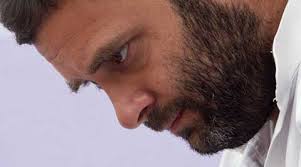New Delhi, May 22: In a veiled attack on 'Team Rahul' over Congress' poll debacle, a section of party leaders today said only those having experience of field work should be given "leadership posts" and wanted a "ruthless introspection" to help it bounce back.
Congress leader Milind Deora, who had yesterday said that Rahul Gandhi's advisers did not have their "ears to the ground" and those with "no electoral experience" were "calling the shots", today stuck to his stand, saying his comments are borne out of deep loyalty to the party and pain due to its performance in the polls.
"My comments are out of emotions of deep loyalty to the party, pain of our performance & a sincere desire to see us bounce back. Nothing more," Deora said on Twitter.
In comments that stoked a blame game within the party and appearing to question 'Team Rahul', he said, "Field party work & electoral battles are key to comprehend ground realities. This should form the basis for leadership posts in Congress."
Senior party leader Satyavrat Chaturvedi appeared to be in agreement with the views expressed by Deora and hoped that an "honest and ruthless introspection" is carried out to rectify the problems.
Chaturvedi said while whatever Deora stated might not be fully correct but "large portion of what he said is correct".
The remarks are considered significant in the wake of a growing perception in the party that a number of people with no electoral experience and novices in politics were given key roles in shaping up the decisions of the leadership on issues like campaigning and alliances.
AICC Secretary Priya Dutt, who met Congress President Sonia Gandhi today, also talked of a "disconnect" of the party leaders with the people.
"We need to bridge that gap. We need to bring that right upto the leadership. There is a lot of criticism. We have to look at where we have gone wrong in the past ten years," she said.
Both Deora and Dutt lost the elections in Mumbai.
They are considered to be part of Rahul's team and it may be mentioned that Deora's assertions in the past on some issues were also followed up by action taken by the Congress Vice President.
Senior Congress leader Capt Amarinder Singh, however, said the Congress should take "collective responsibility" for the rout in which the party got just 44 seats.
NCP leader Majid Memom said Deora's remarks signify that he has indirectly commented on Rahul also.





Comments
Dwukrotnie znalazlam calkiem fajna prace przez wspomniane portale (raz byla to praca
przy montazu a raz oferty pracy w niemczech: https://plus.google.com/+PracujwuniiPl gastronomii).
Add new comment